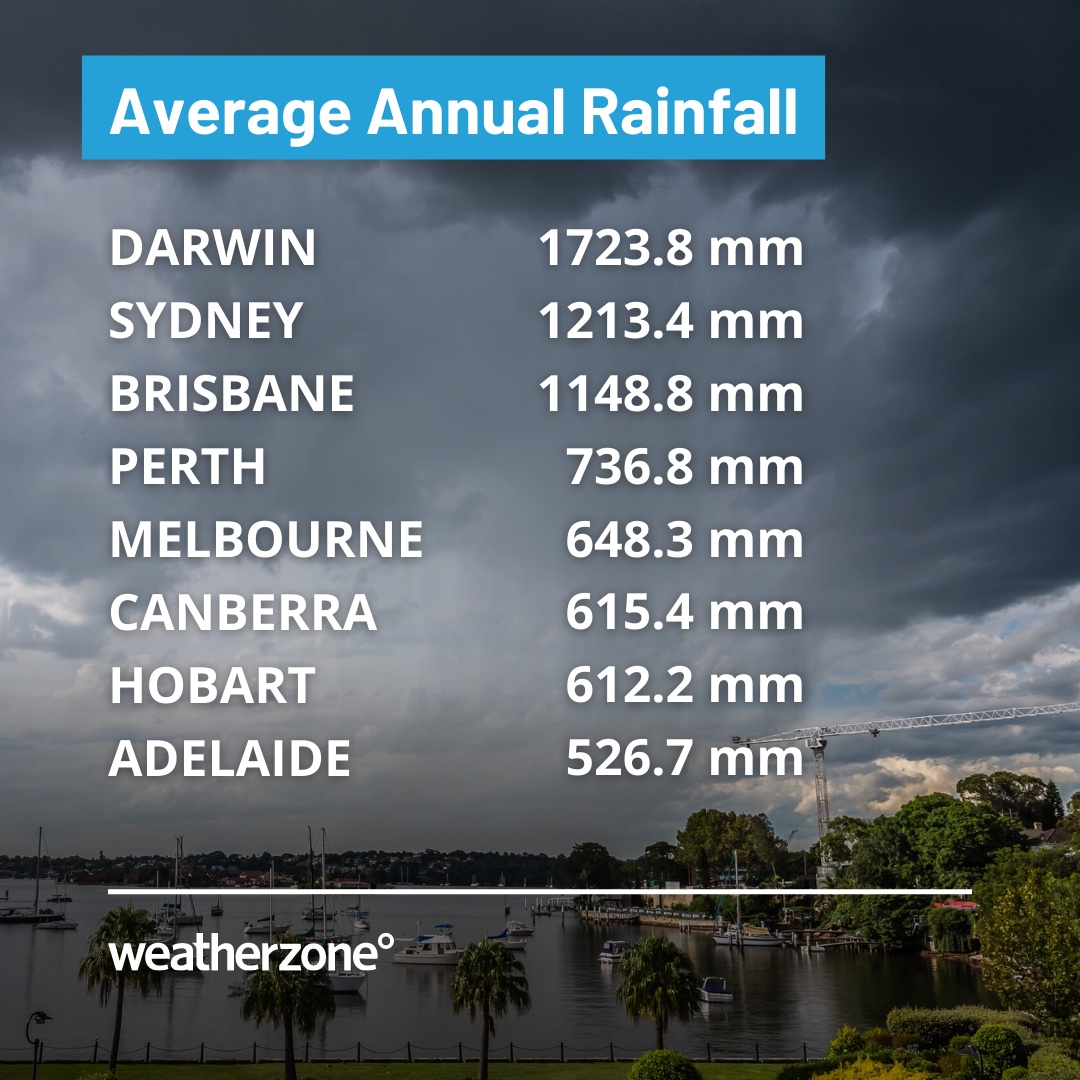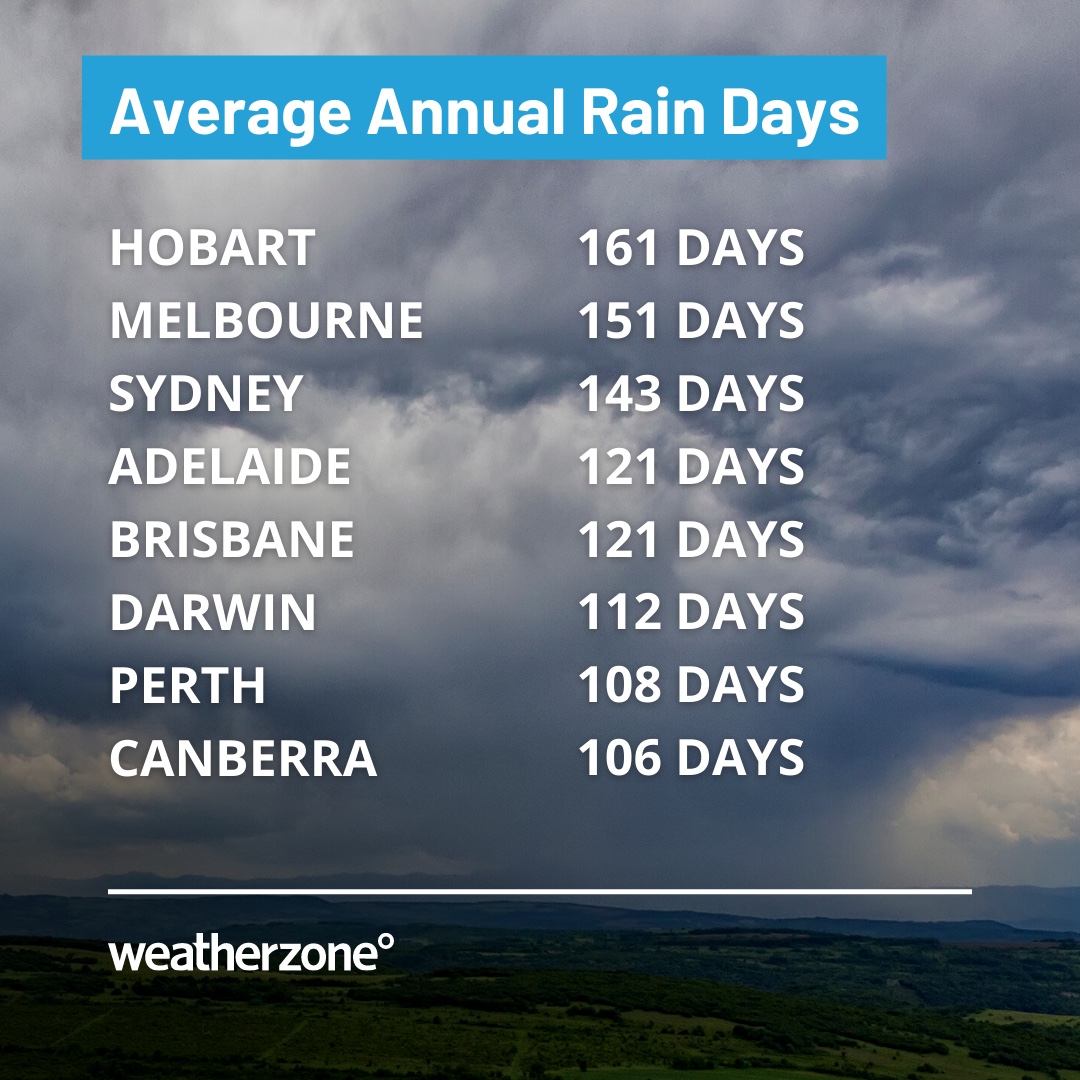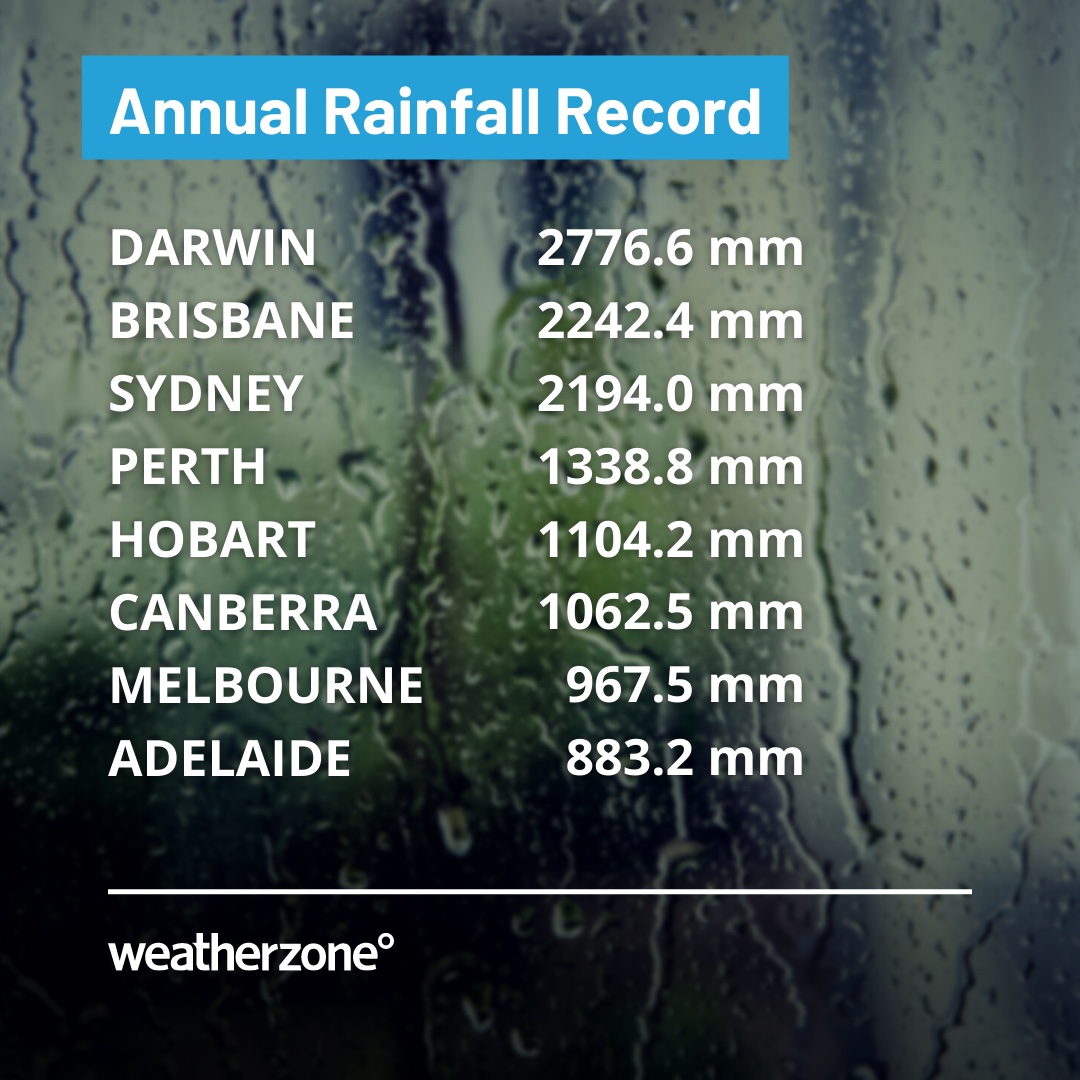Where is Australia's wettest capital city?
Darwin is known for frequent and heavy rain during its wet season and Brisbane often cops huge downfalls during summer thunderstorms. But which Aussie capital city is the wettest in the country?
We can look at three different measures of rainfall to compare the Aussie capitals:
- Average cumulative annual rainfall
- Average number of rain days per year
- Highest annual rainfall on record
Average cumulative annual rainfall
This is probably the most well-known rainfall statistic - how much rain falls, on average, during an entire year.
Darwin is by far the wettest capital city in Australia by this measure, with an annual average of 1723.8 mm. This is half a metre higher than second-placed Sydney, which has an annual average of 1213.4 mm.
Here is the long-term average rainfall from each Australian capital city.

Average number of rain days per year
While Darwin tops the list for total average annual rainfall, it is also one of Australia's driest capitals in terms of rain days per year.
The nations rainiest cities are in southeastern Australia, where Hobart and Melbourne both average more than 150 days of rain per year. By contrast, Perth and Canberra only just get over 100 rain days in an average year.
Interestingly, Hobart is Australia’s 2nd driest capital city based on average rainfall, but the country’s rainiest city based on rain days.
 Highest annual rainfall on record
Highest annual rainfall on record
Whan looking at rainfall extremes, the northern-most capital cities take the cake. Darwin’s annual record of 2776.6 mm is, once again, more than half a metre higher than second-placed Brisbane on 2242.4 mm.
Melbourne and Adelaide are the only two capitals that are yet to see one metre of rain during a single year. And while Sydney’s record of 2194 mm has stood since 1950, it may be challenged this year.
